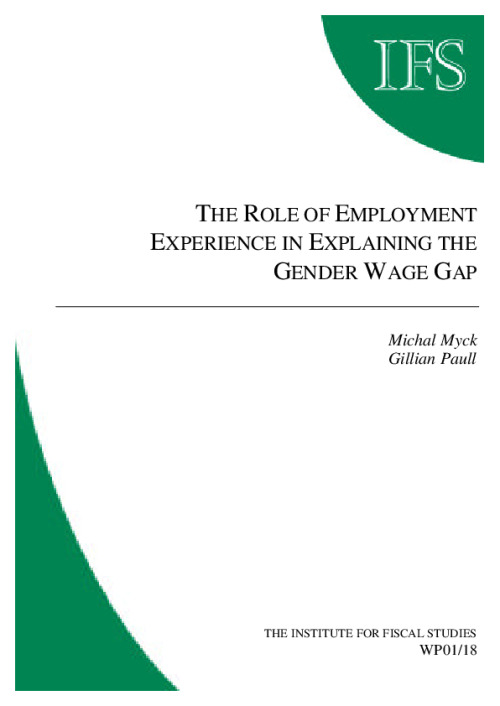Over the last two decades, the wage gap between men and women has narrowed, yet a sizeable discrepancy in earnings capacity remains between seemingly identical male and female workers. Analyses of the role of employment experience in explaining this gender wage gap have been limited by the rarity of appropriate data sources containing this information. In this paper, data from a series of twenty cross sections of the British Family Expenditure Survey is used to examine the changing impact of employment experience on the wage differential across four cohorts of male and female workers. By using grouped data formed into a pseudo panel and by estimating the wage regressions in first differences rather than levels, the potential for estimation bias arising from unobserved heterogeneity and the endogeneity of experience is reduced. The results show that accounting for differences in experience levels, either as a simple total of all years of employment or broken down into full-time and part-time employment, explains little of the gender wage gap. Indeed, it is differences in the returns to experience which generate the gender wage differential, for the gap only develops and widens as experience increases. Successive generations of female workers have are found to have faired considerably better than previous cohorts in terms of their wage position relative to men. However, this development is not explained by relative changes in education level or experience between men and women.









